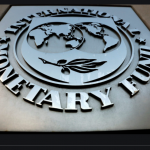When Derek Edward Schloss graduated college, during the last recession, he had wrapped up 15 odd jobs.
It was time for a vacation. Surfing up and down the West Coast with a close friend would give him a much needed buffer.
Wanting to live in Eugene, Schloss moved there and later attended the University of Oregon’s law and business programs. But after passing the bar in 2014 he opted out of practicing law. Instead, Schloss tried his hand at a consumer products company with a few classmates.
This article is part of Road to Consensus, a series highlighting speakers and the big ideas they will discuss at Consensus 2022, CoinDesk’s festival of the year June 9-12 in Austin, Texas. Learn more.
Yet, he felt like he was missing the mark. Looking for something bigger and with more value, he was drawn to the digital world and found that Twitter and everyday video games were just stepping stones to the FOMO-led trend we see today: digital marketplaces.
But he needed to pay the bills, and a part of him still liked working with people in the real world. He became interested in consumer purchasing behaviors and, by extension, how and why people trade assets on blockchains.
Curiosity has driven him ever since, enabling Schloss to eventually become a leading venture capitalist in the non-fungible token (NFT) and creative crypto space, investing in music, fashion, art and gaming.
In 2017, the conversations Schloss and his friends were having centered around protocols and initial coin offerings (ICO) while at parties or at the beach. ”I remember having these conversations and being like, ‘It doesn’t make any sense.’ That only meant getting under the hood to figure out what was happening.”
Schloss later started writing about it, advising a couple of projects in New York and Los Angeles around that intersection of Web 3 and digital art. Later, he reconnected with Stephen McKeon, his former finance professor and now partner at Collab Currency, a crypto-focused venture fund.
The two looked to find answers as to why the intersection of Web 3 and digital art was happening at all. They ran a think tank for a brief period of time, launching the venture fund shortly after, in early 2020.
Initially, they raised $50 million, followed by a second fund that raised $65 million. Schloss and McKeon are planning to raise a much larger fund at an undisclosed amount.
In the last few years, the fund has invested in a number of layer 1, or base, blockchain projects. Schloss is a founding member of FlamingoDAO, a decentralized autonomous organization that caters to art and cultural objects, as well as gaming-based NeonDAO, fashion-focused RedDAO and music-based NoiseDAO.
In 2020, Schloss came across SuperRare, a curated marketplace for one-on-one crypto work. At the time “no one was really buying crypto art,” he said.
His “big unlock,” a thesis written with McKeon titled “You’re Sleeping on Crypto Art,” looked at the contemporary art market and, more importantly, what value it would unlock. Today, that big unlock is defined in mainstream media, with artists, social sites, sports and even banks, moving to find their own.
Since then he has invested in about 40 NFT projects. “We’re spending more and more of our time in digital environments,” he said. The trend isn’t so much about what people know about NFTs but the fear of missing out (FOMO).
In terms of investing, Schloss thinks about the types of people who are in these spaces, what they’re creating and why. He wants to invest in projects based in reality, purpose and potential.
Five years after his first venture into crypto, Schloss still considers whether or not projects in which he invests are playing it fast and loose. “You start to get a quick lens for what feels like a legitimate project that’s trying to create value in this new world,” he said, rather something that makes it look more like a cash grab.
“But sometimes it’s not binary,” he said. Sometimes it’s “‘Maybe I need to investigate and challenge my own biases to see if this is something worth pursuing in some way.’”
Save a Seat Now







